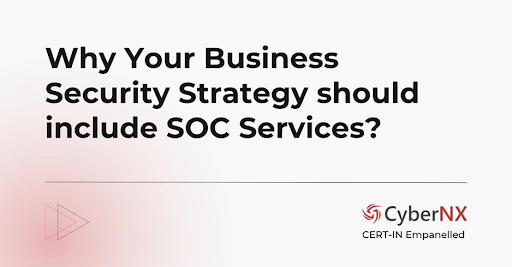Protect Your Children Online Activities by Using a VPN

Do you think your children are safe? More than 7 million children have been attacked by cybercriminals in 2022.
Phishing, cyberbullying, malware intrusion, and child identity theft are some cases mainly reported. Your foremost duty as a parent or guardian is to protect your children.
One essential way to do it is to protect your children’s online activities using a VPN. Let’s discuss how it is the first line of defense.
5 Best Practises for Your Child’s Safety
Digital safety is something that we all must be aware of. Your children are most vulnerable to cyber threats, so you must employ the best cyber practices and train them to be secure online.
Here’s what you can do:
-
VPNs – Your First Line of Defense
Keep your children’s identity anonymous by using a VPN. They are the legal and easiest way to stay secure online regardless of age.
A VPN encrypts your personal data by encryption, which means it is protected in a safe tunnel that travels across your server and the VPN server.
VPNs today are innovative and user-friendly to use. You can choose packages offering family protection so all your devices stay cyber-secure.
-
Discuss the Pros and Cons with Them Freely
Open up a dialogue with your children about their digital footprint. Stress the significance of understanding that whatever they post online remains permanent.
Ensure your child knows what’s acceptable to share online and what should remain private. Tell them to be cautious and keep personal information confidential.
Please note: Some universities now review applicants’ social media profiles, which could affect your child’s future educational pursuits.
-
Help Your Child to Know About Suspicious Platforms
Assist your children in distinguishing between secure and hazardous websites. While most web browsers are equipped to flag potentially unsafe websites, there are always exceptions that might go unnoticed.
Teach your child to exercise caution when accessing safe sites from harmful ones. Examining the URL in the address bar is an easy way to assess a website’s safety.
If the URL begins with ‘https,’ it signifies that the site is secure. ‘HTTPS’ stands for Hypertext Transfer Protocol Security, with the ‘s’ denoting security. Websites utilizing ‘https’ are generally secure.
-
Password Security is for Children, too!
Teach your children the importance of creating robust passwords. A fail-safe password is a fundamental element of online safety.
While it might be tempting to use easily memorable passwords, such as a pet’s name or a street address, research has shown that such passwords are less secure.
Opt for passwords that are at least eight characters and encompass a mix of letters and numbers, as they are substantially more secure.
While it can be challenging for children to recall complex passwords, user-friendly tools, like a random password generator, can assist them.
-
Updated Software the Most Important
Ensure that all devices that your children use have up-to-date software. Hackers often exploit vulnerabilities in outdated software.
Dedicate some time to regularly check and update the software on your and your child’s devices, especially the antivirus software, browsers, and operating systems.
Frequent updates and patches address known security issues, so staying current and taking advantage of these safeguards is crucial.
VPN Features to Look for Your Child’s Security
The market is flooded with VPN providers. Ensure that a VPN provides the features you want for maximum child security.
Content Filtering
A good VPN service includes content filtering options, allowing parents to block or filter out age-inappropriate or harmful content. This can help protect children from explicit material or online threats.
DDoS Protection
On gaming and streaming platforms, your child can become a victim of a DDoS attack. A VPN can help mitigate the risk by protecting you against malicious traffic.
Encrypted Connection
A VPN provides an encrypted connection. This makes it more difficult for hackers to intercept data or launch cyberattacks.
This will protect your child from identity theft and your financial information, as the main motive of cyber intruders is to reach your financial information through malicious means.
Ad and Tracker Blocking
Some VPNs come with ad and tracker-blocking features, reducing exposure to invasive ads and limiting data collection by websites and advertisers.
Kill Switch
A kill switch helps to disconnect the internet if the VPN connection drops automatically. This VPN feature ensures that your child’s actual IP address isn’t exposed during online activities.
Multi-Device Support
Many VPNs offer multi-device support, allowing you to protect multiple devices on a single subscription, including smartphones, tablets, gaming consoles, and computers.
This gives you a family cover against cyber-attacks, which sometimes attack your WiFi routers and connection.
Customizable Security Levels
Advanced VPNs offer different security protocols and levels. You can customize the security settings to match your specific needs and concerns.
Logging Policies
Choose a VPN service with a strict no-logs policy to ensure that your child’s online activities are not recorded or tracked by the VPN provider.
Cyber Intrusion Alert: Is Your Child a Gamer?
Kaspersky analyzed the risks associated with the most popular online games catering to children between the ages of 3 and 16.
During this period, 232,735 young gamers encountered almost 40,000 files disguised as harmless children’s games, which led to malware and potentially unwanted applications.
The children in this age group often utilize their parents’ devices for gaming; it is evident that cybercriminals are primarily targeting these platforms so that they gain access to sensitive information, such as credit card data and parental credentials.
Players attempted to download malicious files, posing as Roblox, a viral gaming platform for kids. Since half of Roblox’s players are under 13, the target is children with limited cybersecurity knowledge.
Cybercriminals use social engineering tactics to attract young players with offers of downloading famous cheats and game modifications. Some phishing sites provide instructions on disabling antivirus software to avoid detection by security measures.
Parents need to be extra careful about what apps their children download and whether their devices have gaming VPN installed, and they should teach their children how to behave online.
Social Media and Data Security
The main problem on social media is the lack of awareness among most social media users about privacy settings and the risks associated with disclosing sensitive information on their profiles.
It is imperative to recognize that social media platforms are fundamentally designed to connect only and not to share essential information. Children are unaware of this and love sharing what they do, eat, and study.
According to the National Cybersecurity Centre (NCSC), the key to safeguarding one’s online presence on social media platforms lies in knowing one’s digital footprint and adopting measures to fortify one’s online security.
Parents must openly tell their children that safety on social media platforms is essential. Making children aware of texting, WiFi calling, accepting unknown friend requests, and sharing personal details about their location and other family members is unsafe.
Connecting to a reliable VPN while on social media platforms, including Facebook, Snapchat, or TikTok, is one of the best ways for your child to maintain anonymity. Some TextNow and Google Voice users have reported potential breaches; a VPN for TextNow can be your best way to avoid hacks or suspicious activities.
Do We Have the Evidence?
Giant names have been accused of leaking children’s data to third parties or mishandling them without the intention to leak. Therefore, keeping your children’s identity anonymous and having zero trust in any platform regarding safe data handling is essential.
TikTok
TikTok, the popular Chinese-owned short-video platform, was fined $370 million for violating EU privacy regulations concerning handling children’s data.
The fine was levied by the Irish Data Protection Commissioner (DPC), TikTok’s primary overseer within the European Union.
The reason was that TikTok user accounts below the age of 16 were made “public” by default and failed to verify the parental or guardian status of these users adequately
TikTok expressed its disagreement with the suit. After that, the company was committed to improving its privacy-related resources, checking public and private accounts, and automatically configuring new users aged 16 to 17 as “private.”
In accordance with the General Data Protection Regulation (GDPR) of the European Union, regulatory authorities possess the authority to impose fines amounting to as much as 4% of a corporation’s global revenue.
The Irish DPC has a record of imposing penalties on other tech giants, such as Meta, for privacy breaches.
Microsoft
Microsoft paid a $20 million settlement with the U.S. Federal Trade Commission (FTC) over allegations of unlawfully collecting and retaining data from children registered on its Xbox video game console without parental knowledge or consent.
The settlement aimed to enhance child privacy protections and ensure compliance with the Children’s Online Privacy Protection Act (COPPA).
The settlement also laid importance on Microsoft to update its account creation process for children, with provisions for obtaining parental consent and prompt data deletion if consent is not obtained within two weeks.
These privacy measures extend to third-party game publishers who access children’s data and include safeguards for biometric information and avatars created from children’s data.
The FTC contended that Microsoft violated COPPA by collecting personal information from users under 13 until late 2021 and sharing the data with advertisers by default until 2019.
Microsoft was also accused of retaining children’s data for extended periods, even without parental completion of the signup process, and creating unique identifiers for underage accounts.
Xbox was pledged to improve age verification systems and involve parents in child account creation, citing a technical glitch for data retention issues.
We Need to Secure Young Minds
As parents, educators, and mentors, we guide, educate, and protect. A VPN is your companion in this mission.
It’s not just about digital security; it’s about nurturing a safe space for our children.
Be safe, and keep your children safe, too!

How Advanced Freight Broker Software Shapes a Profitable, Productive Supply Chain

How a Poor Internet Connection Can Hamper Your Business

The Ultimate Way to Stay Organized at Your Nail Salon

AI in Marketing Is No Longer a Buzzword — It’s the Strategy

Srinivasa Rao Challa Champions AI-Powered Financial Systems for a Smarter, Safer Economy

User Onboarding 101: How to Turn New Users into Loyal Customers

Why Above Bits Still Believes in Manual SEO (And What That Even Means in 2025)











